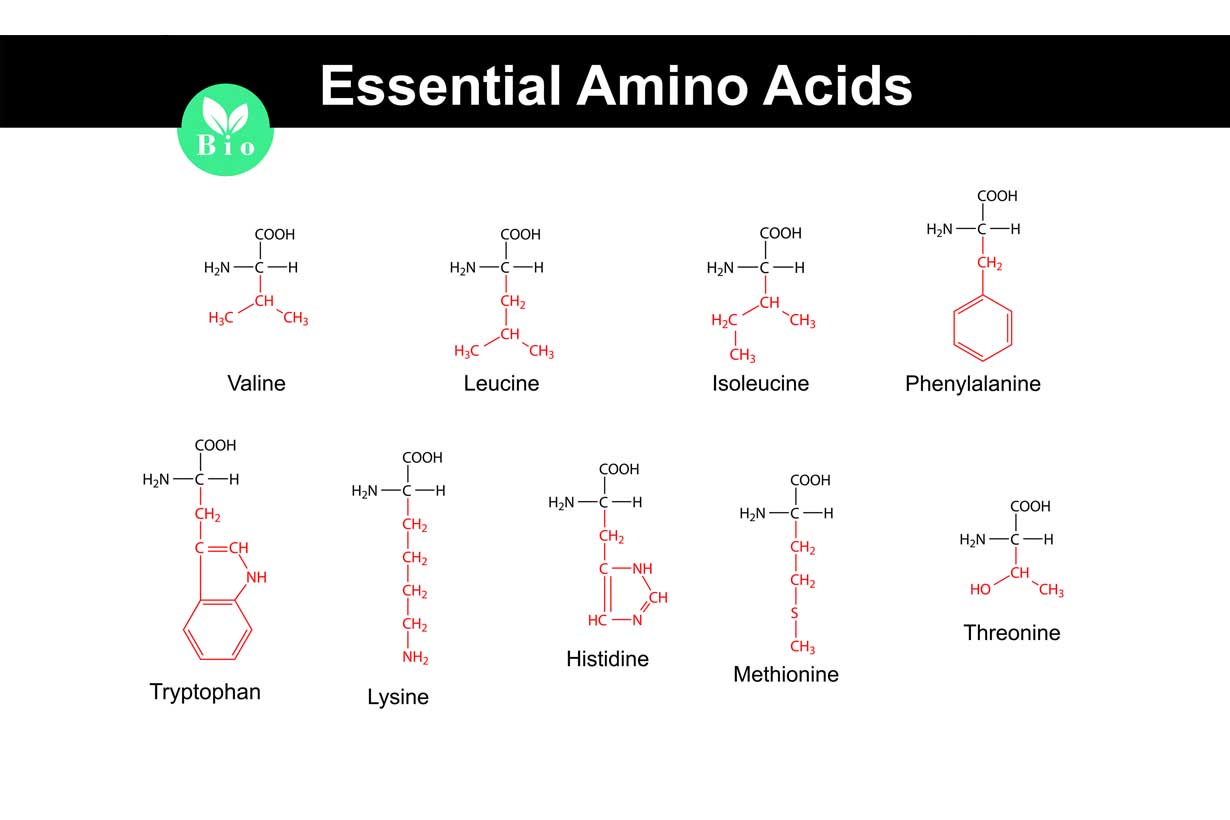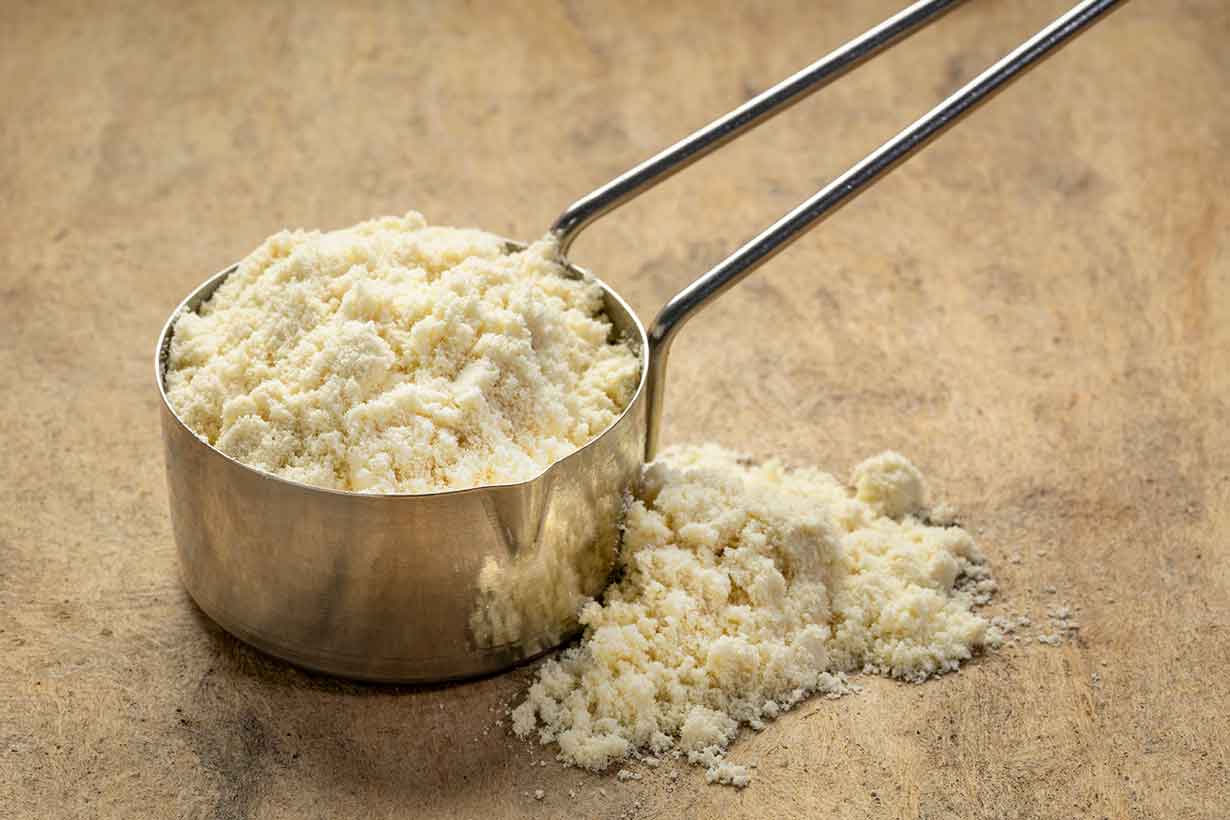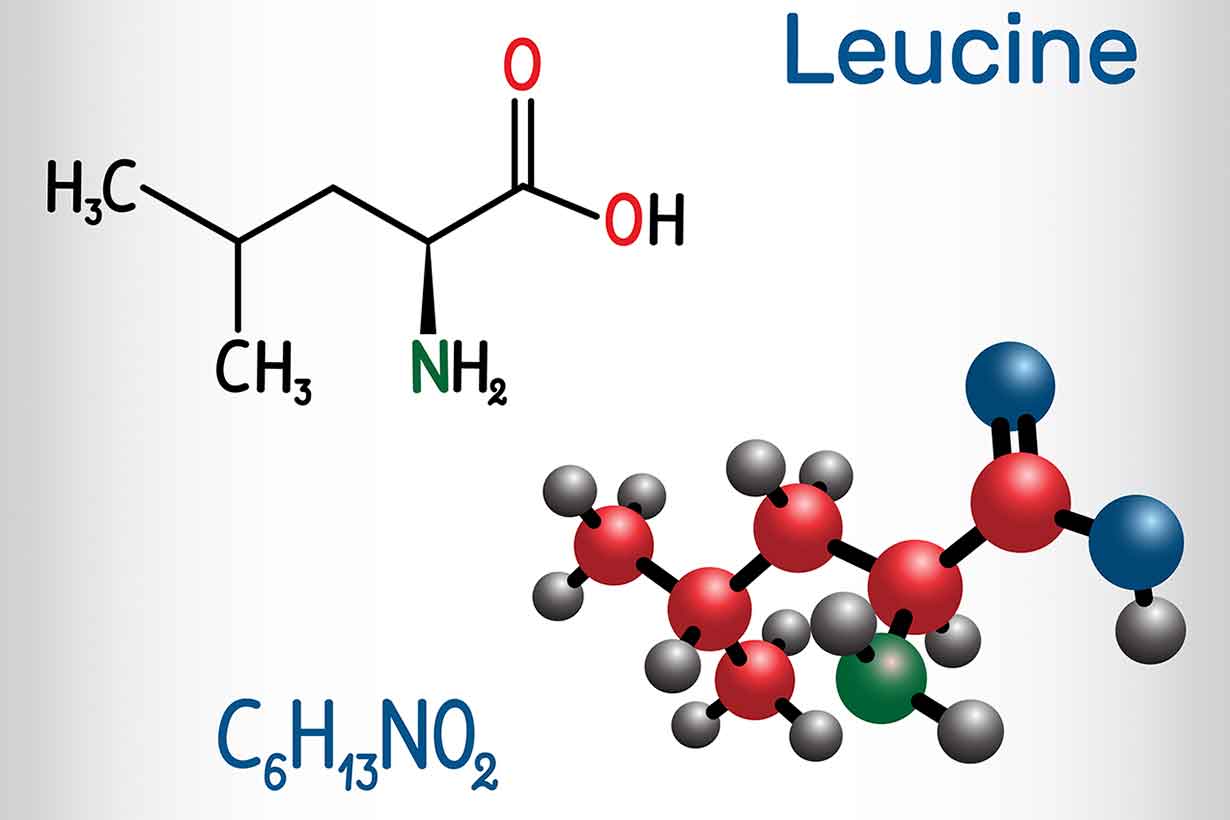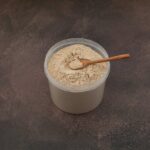Alongside carbohydrates and fats, protein is one of the three macronutrients found in food, and it plays a critical role in our health.
For this reason, it is essential to ensure we consume a sufficient amount of protein.
This article presents nine science-backed health benefits of protein consumption.
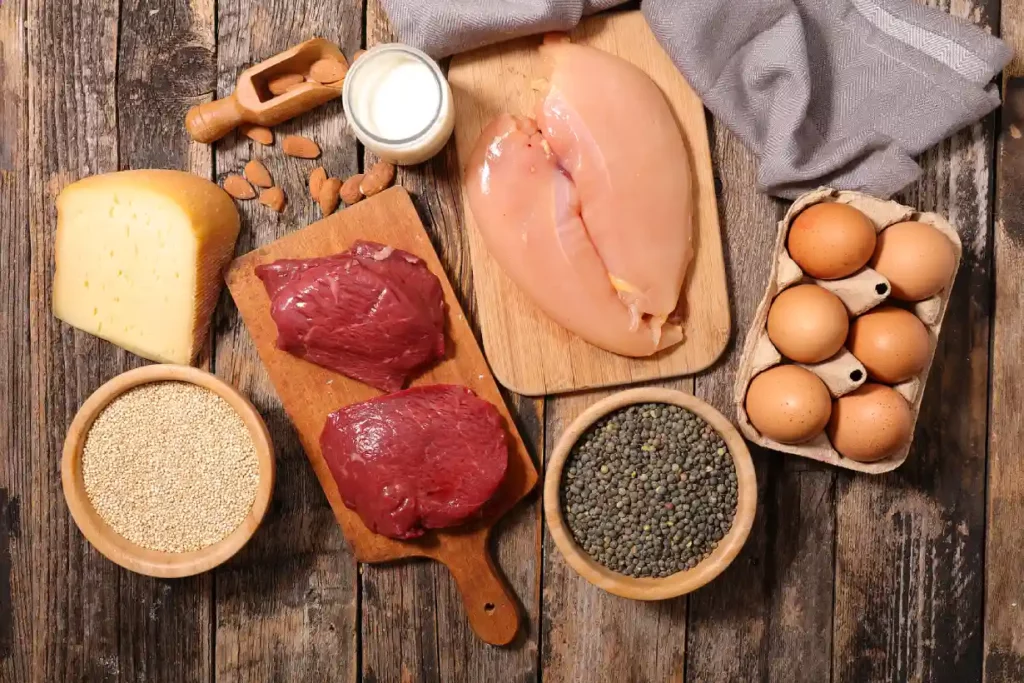
Table of contents
- 1) Protein Promotes Satiety
- 2) Protein Helps To Build Muscle
- 3) Sufficient Protein Promotes Healthy Hair and Skin
- 4) Amino Acids Play a Significant Role In Immune Response
- 5) Higher Protein Intake Helps Preserve Bone and Muscle Mass In Older Adults
- 6) Eating More Protein Can Support Weight Loss
- 7) Greater Protein Intake Can Improve Body Composition
- 8) Protein-Rich Foods Provide a Broad Range of Nutrients
- 9) Protein Boosts Metabolism
- Final Thoughts
1) Protein Promotes Satiety
Satiety, defined as feeling full and not desiring more food after a meal, is important to consider when planning a healthy diet. If we feel satiated, we are less likely to have hunger cravings, snack, or overeat.
While calories do matter, regulating total energy intake becomes much easier if we don’t feel the need to snack every few hours. This is where protein comes in; scientific research suggests that it promotes satiety, likely more effectively than other macronutrients (1, 2, 3, 4, 5).
In other words; protein might suppress hunger better than an equivalent amount of carbohydrate or fat.
Key Point: Protein helps us to feel fuller and less likely to experience food cravings.
2) Protein Helps To Build Muscle
Consuming enough dietary protein is essential for anyone looking to increase muscle mass.
Although resistance training is a crucial part of building muscle, progress will be difficult without a well-formulated nutrition plan.
A common mistake people make is to work out hard, see limited results, and then assume they don’t have the right “genetics” to build muscle, or that it’s too much effort.
In reality, what you eat is just as important as what you lift.
Numerous studies back this up, and here is a summary of recent research:
- Over a 4-week period, a randomized trial demonstrated that a daily protein intake of 2.4 grams per kilogram of body weight increased lean body mass more than 1.2 grams per kilogram (6).
- A systematic review analyzed 49 studies involving 1863 participants and concluded that protein supplementation can significantly improve gains in strength and muscle size. However, when total protein intake exceeded 1.62 grams of protein per kilogram of body weight per day, no further gains were noted (7).
- Another systematic review evaluated data from 74 randomized controlled trials and found that protein supplementation slightly increased lean mass gains in resistance-trained individuals (8).
Key Point: Increasing protein intake is helpful for building muscle.
3) Sufficient Protein Promotes Healthy Hair and Skin
While many people know that protein helps build muscle, fewer realize it also plays an integral role in our skin and hair health.
When we consume protein, it breaks down into amino acids, which are important building blocks for producing keratin (9).
Keratin is a type of protein that promotes strong, healthy hair and skin. In fact, keratin comprises approximately 95% of human hair (10).
As a result, maintaining sufficient protein intake is beneficial for supporting healthy hair, nails, and skin.
Key Point: An adequate protein intake is essential for healthy hair and skin.
4) Amino Acids Play a Significant Role In Immune Response
Ensuring sufficient dietary protein intake can also have benefits for immune health.
Notably, protein enhances the human immune system, and specific amino acids, such as arginine, cysteine, and glutamine, play key roles in immune response (9).
These, and other, amino acids also help to improve T-cell function (10, 11). T-cells are white blood cells that play a vital role in the immune system by (12):
- Attacking cells related to viruses and cancer cells
- Coordinating immune responses
- Helping to protect against re-infection by viruses
In contrast, a deficiency of dietary protein can impair the immune system and increase susceptibility to infectious disease (13).
Key Point: A sufficient intake of dietary protein is critical for optimal immune function.
5) Higher Protein Intake Helps Preserve Bone and Muscle Mass In Older Adults
Research shows that older adults may require higher protein intakes to help prevent bone and muscle loss (14, 15, 16).
These higher requirements are because, as we age, the anabolic response to dietary protein declines, resulting in a lower muscle protein synthesis rate. Put simply, with advancing age, we absorb less protein from what we eat, which can lead to a loss of lean body mass (17).
Maintaining lean muscle mass as we age is crucial for preserving physical strength, function, and for protecting against frailty (18).
In this regard, data suggests that current recommended protein intakes may be inadequate for older adults. Several studies have recommended a daily protein intake ranging from 1.2 to 1.6 grams of protein per kilogram of body weight to help prevent the loss of muscle mass and strength (18, 19, 20, 21, 22).
Despite this, older adults often have the lowest protein intake. A 2019 analysis of data from the National Health and Examination Survey (NHANES) found that up to 46% of adults aged 71 or over didn’t meet protein intake recommendations (23).
Loss of Bone and Muscle Mass In Older Age
While lean muscle mass typically contributes up to 50% of body weight in young adults, this proportion significantly drops with age. For example, lean muscle mass is typically only 25% of body weight in adults aged between 75 and 80 (24).
Further to this, insufficient dietary protein intake increases the risk for osteoporosis and bone loss throughout adulthood (16).
Since protein plays a dual role in bone and muscle formation, ensuring adequate intake can help reduce the risk of loss of age-related bone and muscle mass.
Key Point: Consuming a higher amount of protein may be beneficial for preserving bone and lean muscle mass in older adults.
6) Eating More Protein Can Support Weight Loss
Quick-fix crash diets may work for a short time, but they are generally unenjoyable, unsustainable, and often result in individuals regaining the lost weight (25, 26).
For long-term, sustainable weight loss, it is vital to find a diet we can enjoy and maintain. When we feel satisfied with the food we eat, it gives our chosen diet the biggest chance of success.
As discussed earlier, evidence shows that higher protein diets likely improve satiety.
For these reasons, individualized diets that emphasize a greater focus on protein may encourage better dietary adherence.
Studies on Higher Protein Intake and Weight Loss
Here are some recent high-quality studies that examined the potential of high-protein diets for weight management:
- A systematic review and meta-analysis of 37 studies published in 2021 assessed the impact of dietary protein on body weight management. The analysis found that participants who increased dietary protein intake lost an average of 1.6 kilograms more weight than control subjects (27).
- A systematic review of 20 randomized controlled trials found that participants consuming higher-protein diets lost more body fat while retaining more muscle during weight loss (28).
Key Point: Systematic reviews show that high-protein dietary interventions can be beneficial for weight management.
7) Greater Protein Intake Can Improve Body Composition
Since protein can promote muscle mass and encourage adherence to diets, higher-protein diets may help improve body composition.
For instance, a 12-month randomized clinical trial involving 130 participants assessed the effect of a high-protein diet compared to a calorie-equated higher-carbohydrate diet.
Despite equal calorie intake, the high-protein diet more effectively reduced body fat percentage than the high-carbohydrate diets over the 12-month intervention. This was partly because less lean muscle mass was lost (29).
Very High Protein Intakes and Weight
Respected sports scientist Dr. Jose Antonio and his team published an interesting study examining the effect of very high protein intakes in resistance-trained individuals.
In summary, the study investigated the impact of a diet containing more calories than the body requires, with a total protein intake equivalent to 5.5 times the recommended daily allowance.
Perhaps surprisingly, this eight-week diet led to no significant changes in fat mass or body fat percentage (30).
Key Point: As part of a sensible dietary pattern, protein can help to improve body composition.
8) Protein-Rich Foods Provide a Broad Range of Nutrients
Think of almost pure sources of carbohydrates, such as sugar and syrup; they contain virtually no vitamins or minerals.
We can say the same for isolated dietary fats. While butter and olive oil may contain some fat-soluble vitamins, they can’t really be considered nutrient-rich.
On the other hand, foods with high protein density tend to be rich in a range of vitamins and minerals.
For example, chicken breast and skim milk are two of the most protein-dense foods.
Chicken breasts are not just a source of protein; they also supply significant amounts of B vitamins, phosphorus, and selenium (31).
It is the same for skim milk, which is a rich source of B vitamins, calcium, and phosphorus (32).
In summary, increasing our intake of protein-rich foods may also help to boost overall nutrient intake.
Key Point: Protein-rich foods often provide a good source of vitamins and minerals.
9) Protein Boosts Metabolism
Digesting and processing food increase the body’s metabolic rate (33).
This effect is sometimes referred to as the ‘thermic effect’ (TEF) or ‘diet-induced thermogenesis’ (DIT).
In simple terms, this means that we expend energy to consume a meal and absorb the nutrients it contains.
An important point to remember is that protein has a higher thermic effect than either carbohydrates or fat.
The thermic effect of dietary carbohydrate is approximately 5-10%, and it can be up to 3% for dietary fat. However, researchers estimate the thermic effect of protein to be around 20-30% (33, 34).
To put it another way, consuming protein requires energy equivalent to around 25% of its calories to digest.
As a result, higher-protein diets lead to greater energy expenditure than lower-protein diets.
Key Point: Protein has a higher thermic effect than either carbohydrates or fat. We burn more calories digesting protein than we do for other macronutrients.
Final Thoughts
As shown in this article, dietary protein can offer many potential benefits.
That said, it’s important to note that the benefits of protein don’t mean we all need to eat more of it.
The amount of protein we need will vary depending on personal circumstances, activity levels, age, and other factors. See this guide to protein requirements for more information.
However, increasing protein at the expense of processed carbohydrates and fats is likely to improve the nutritional value of the average diet.
Related



